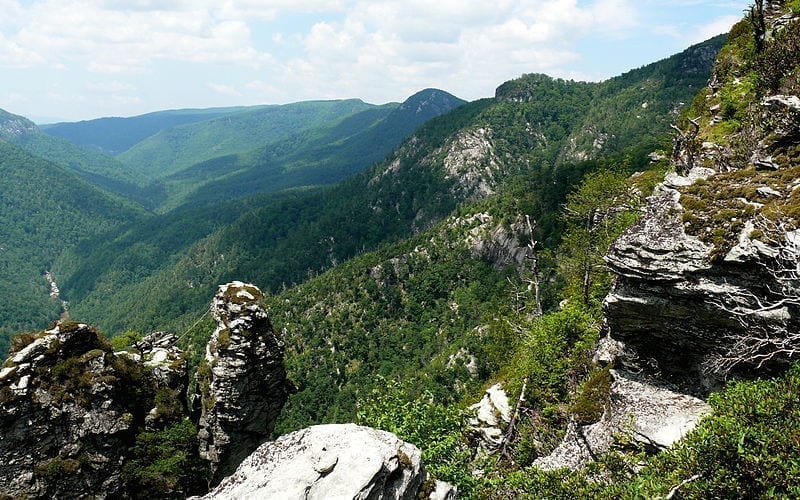News reporting always seems to concentrate on the things going wrong, doesn’t it? Especially since the 2016 election, there’s been a widespread feeling among Progressives that all we can do is buckle down and resist the worst of the Trump agenda. It’s easy to be discouraged into hopelessness by seeing the scale of the battles ahead of us. However, in communities across the country, individuals and organizations are actively making the world a better place to live. We don’t have to wait until government changes hands again to come up with local solutions that might just work.
News reporting always seems to concentrate on the things going wrong, doesn’t it? Especially since the 2016 election, there’s been a widespread feeling among Progressives that all we can do is buckle down and resist the worst of the Trump agenda. It’s easy to be discouraged into hopelessness by seeing the scale of the battles ahead of us. However, in communities across the country, individuals and organizations are actively making the world a better place to live. We don’t have to wait until government changes hands again to come up with local solutions that might just work.
Benicia, CA: When Valero Oil sought permission last autumn to move crude by rail through their community, activists in this northern California town weren’t having it. Valero, Benicia’s largest employer and a major supplier of charity funds and tax revenue, expected routine approval for the project. Instead, a small, well-informed group of citizens convinced the heavily pro-Valero city council to ask Valero some hard questions about their proposed route (over and around rivers that are important sources of drinking water) and environmental impact report. When good answers were lacking, the town denied permission for the project. Other small California towns learned from their example and have also decided to take on Big Oil.
Los Angeles, CA: Richard D. Garcia and Erika L. Cuellar started Alma Backyard Farms in 2013 as a way to provide juvenile offenders and newly released prisoners with a positive influence and useful skills to change their lives. Alma Backyard Farms takes advantage of under-utilized areas around the city, such as private yards and donated space at churches and schools, to create local solutions by employing ex-offenders and supplying nutritious food to the community. It’s a powerful feeling to go from being powerless and caged, to having custody of plants that are your responsibility to nurture. They take pride in wasting nothing: no space, no lives.
Alma Backyard Farms, posted by Alma Backyard Farms
Milwaukee, WI: Seems like almost everywhere, people could use local solutions that bring good, fresh food and jobs to communities. In Milwaukee, Jay Holmes founded Market Boxx Community Stores to help solve both of these problems. These stores are built like small sheds on wheels so that they can take fresh food right into low-income neighborhoods. Holmes teaches each individual entrepreneur how to build his mobile store, often with help from community organizations, and connects them with supplies so they can take their mini-business on the road.
New York, NY: City resident Kate Zidar didn’t want to fight city hall, she just wanted to compost her food waste. So she did! She dragged heavy 55-gallon drums into an unused corner of a city park and began to turn her kitchen scraps into fertile soil. When neighbors saw what she was doing, they joined in. Before long, funds were raised, compost fed a community garden, and a composting collective took over the project. Only after all of this did the city finally realize that composting was necessary and popular, and initiated a curbside pickup program. Sometimes, local solutions begin with someone more willing to ask forgiveness than permission.
Western NC: Plant physiologist Joe-Ann McCoy noticed what a changing climate was beginning to do to her corner of Appalachia, so she decided to take action. An area rich with a wide variety of plants (including important medicinal herbs), northwestern North Carolina mountain woodlands were succumbing to zone creep as warmer temperatures advanced northward each year. McCoy began to collect seeds from plant specimens throughout their native range to ensure the preservation of each species’ genetic diversity. Currently, her seed bank stores about 1700 different varieties that she hopes will one day repopulate a changing region.
Texas hill country: David Bamberger was born into poverty, but his mother instilled in him a love of nature. He went on to become a successful entrepreneur, starting a popular fast food chain, but eventually sold his business and bought the worst, most degraded piece of Texas he could find. By carefully managing the available rainfall, he was able to bring life back to the land, growing trees where only dry brush once lived fifty years before. He named his wildlife preserve Selah, after a word that means to stop, look around, and reflect on where you are.
Whether your passion is food justice, clean water and soil, working with disadvantaged communities, or simply giving back wherever your skills are a good match, we can all be part of local solutions right where we are. We can’t always trust institutions or businesses to create the kind of world we’d like to live in, and the next several years are likely to be thick with discouraging political and economic setbacks. If it is to be, it is up to me – and you, and you, and you.


Join the conversation!